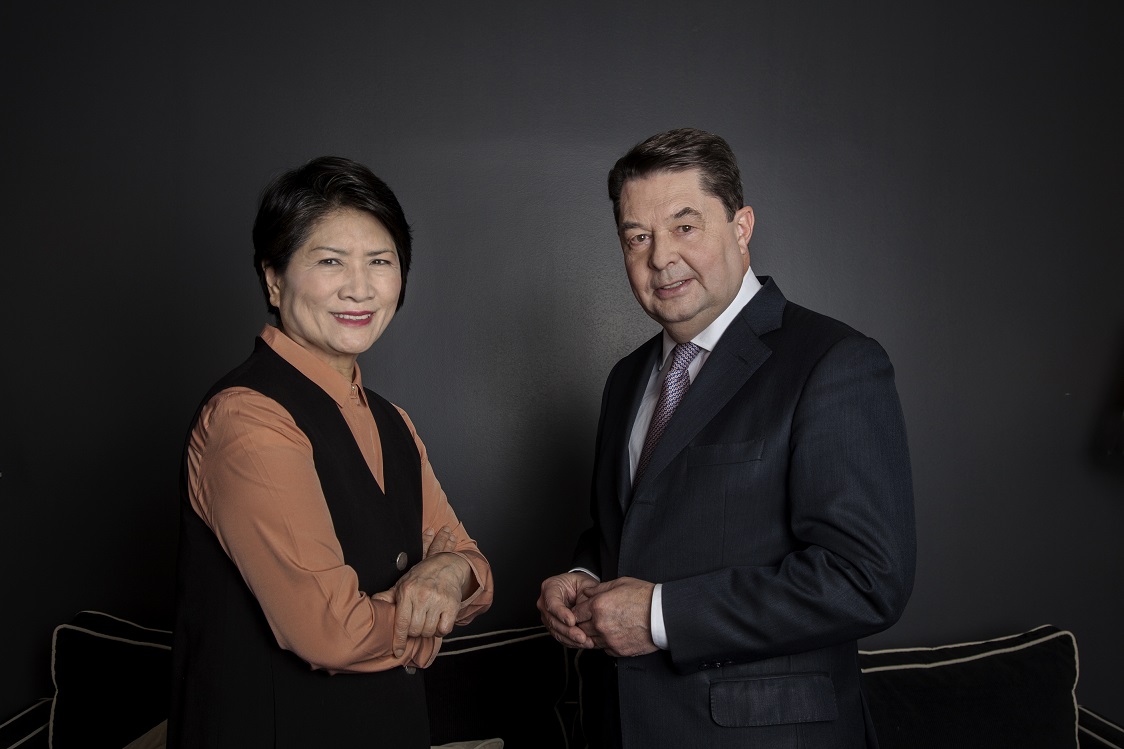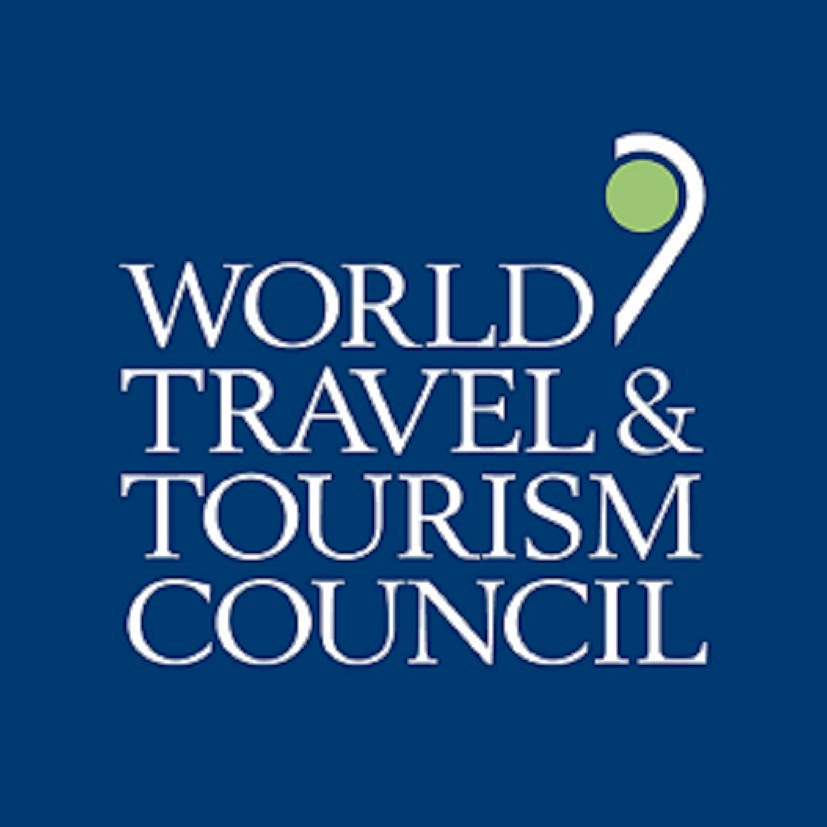

The Power Of Tourism And Global Unity
Mel Webster, Special to WorldTourismWire
The 2016 US election results are still reverberating globally, regardless where in the world one
resides. One interesting lesson learned from the recent US Presidential election race is
assuming an outcome before the votes are counted is not prudent.
A very different and perhaps more thoughtful election is about to take place in Madrid, Spain.
In an era of global turbulence and troubled times, with people looking for stability, unity and
responsible solutions, the role of the United Nations World Tourism Organization (UNWTO) is
more critical than ever before. With the upcoming UNWTO general election of a new Secretary
General, seven candidates have been nominated to build on the considerable successes of
outgoing Secretary General, Dr. Taleb Rifai.
From the Republic of Korea, Ambassador Dho Young-Shim, with a remarkable career in tourism,
is a candidate with integrity, perspective, and balance to provide new leadership of the UNWTO
in uncertain times.
Dho Young-Shim is endorsed by the Republic of Korea, a country that vigilantly safeguards and
values ethics, integrity and honesty, especially at the highest levels of government. As it has
been clearly demonstrated with the recent impeachment of President Park.
Dho Young-Shim, with an impeccable and lengthy track record of championing and
implementing authentic sustainable tourism, is receiving support from diverse regions of the
world. As a side note, since its inception, UNWTO has never elected an Asian representative or
female to the helm of the organization.
To move beyond standard candidate campaigning rhetoric, Dho Young-Shim outlined why she
wants to navigate the UNWTO through challenging, if not choppy global waters.
“I grew up in a country that wasn’t yet developed as it is today. I worked for every opportunity
to become a better person, to learn, to earn an education and to contribute to my country’s
development and growth. These are hopes common to people in all parts of the world. I have
enormous compassion for anyone who struggles to put food on their table or to get an
education. Through the power of tourism we can authentically help people live better lives.
Sustainable tourism is not a buzzword, it is a very real duty. I have made it my life’s work due to
my humble background. I have been there. I want to bring UNWTO to new heights, building
on the legacy received.” noted Dho Young-Shim.
Dho Young-Shim has nominated Spanish national Carlos Vogeler as her running partner.
Both Carlos Vogeler and Dho Young-Shim have extensive experience working with the UNWTO,
Vogeler is a current Executive Director with more than three decades in the global tourism
sector. Combined they bring extraordinary depth of skills and understanding within an industry
and to a world that needs inclusive, cohesive leadership.
In a recent paper UNWTO provided an overview of the primary responsibilities of the Secretary
General position, emphasizing the importance of increasing membership from tourism
destinations not currently participating in the UNWTO. These countries include USA,
Singapore, United Kingdom, Sweden, New Zealand and other major tourism destinations.
” I firmly believe there is great strength in unity. UNWTO’s core foundation embodies unity
through tourism. There is also a duty of responsibility when tourism is a major economic driver
within a country. Bringing more nations into the UNWTO, uniting together, we can make very
real, measurable differences globally. ” said Dho Young-Shim.
Voting for the new Secretary General of the UNWTO will take place in Madrid
May 11, 2017, with seven candidates on the ballot. Handing the reins over to a new Secretary
General is a large responsibility in the capable hands of voting members of UNWTO. It is
reasonable to believe the voting members will read between the lines of candidate campaign
trail soundbites and maneuvers in the press while jockeying for the highly sought-after position.
The global tourism industry as a whole requires a thoughtful election to take place next month.
Turning away from narratives that do not authentically behoove global tourism interests, while
embracing fresh perspectives that will bring people together for the greater good is vital for the
stability of tourism in turbulent times.
“We need more genuine leadership in the world, not divisiveness . The power of tourism is
enormous. Uniting together we can bring about change to this planet of ours, all while fully
supporting stakeholders. With unity comes strength.” said Dho Young-Shim.

Tourism supports 1 in 10 jobs, outpacing global economy for 6th consecutive year, WTTC
Travel & Tourism generated 1 in 10 of the world’s jobs in 2016 as the sector grew by 3.3%, outpacing the global economy for the sixth year in a row, reads a new report by the World Travel & Tourism Council (WTTC).
WTTC’s Economic Impact Report 2017, which is conducted in conjunction with Oxford Economics, researches the economic impact of Travel & Tourism impact on global level, for 25 regions, and 185 countries.
According to the research, Travel & Tourism grew by 3.3% in 2016, generating US$7.6 trillion worldwide, which is 10.2% of global GDP when the direct, indirect and induced impacts are taken into account. The sector supported a total of 292 million jobs in 2016, which is 1 in 10 of all jobs in the world
Additionally, global visitor exports, which is money spent by foreign visitors, accounted for 6.6% of total world exports, and almost 30% of total world services exports.
David Scowsill, President & CEO, WTTC, said: “This is the sixth year in a row that Travel & Tourism has outpaced the global economy, showing the sector’s resilience, and the eagerness of people to continue to travel and discover new places, despite economic and political challenges across the world.
The continuous growth of our sector underlines the significance of business and leisure travel in driving economic development and job creation throughout the world.”
Southeast Asia (8.3%) was the region with the fastest growing Travel & Tourism sector in 2016, driven by the expanding Chinese outbound market and the countries own growing markets. Latin America (0.2%) was the slowest growing region. Some countries performed well above the world average, but the Brazilian economy dragged down the whole region.
The other regions registered the following growth: South Asia (7.9%), North East Asia (4.6%), Oceania (4.4%), the Caribbean (3.2%), North America (3.1%), the Middle East (2.7%), Sub-Saharan Africa (2.4%) and Europe (1.6%).
Travel & Tourism is expected to grow by 3.8% in 2017, generating US$ 7.9 trillion. This growth is slower than previously forecast, as a result of a downgrade to the global economy and a dampening of consumer spending.
Over the next decade the sector is forecast to grow at an average of 3.9% per year. By 2027 it will generate more than 11% of the world’s GDP and employ a total of 380 million people. One quarter of all jobs created in the next decade will be supported by Travel & Tourism.
Scowsill continued “The future prospects for Travel & Tourism are good, but the sector continues to face challenges. The impact of terrorism and the rise of populism pose a severe risk to the ability of people to travel efficiently and securely. The sector itself needs urgently to address the impact of growth on destinations and its own contribution to climate change if it is to be sustainable in the long term. The UN’s 2017 International Year of Sustainable Tourism for Development is a perfect opportunity to explore solutions together. We look forward to welcoming delegates at our upcoming Global Summit in Bangkok, Thailand, 26-27 April where these challenges will be addressed.”

UNWTO Secretary-General welcomes Japan’s support for tourism when meeting with Prime Minister Abe
The Secretary-General of the World Tourism Organization (UNWTO), Taleb Rifai, applauded Japan’s commitment to tourism development as one of the significant pillars of the socio-economic agenda during a recent official visit to Japan. Meeting Prime Minister Shinzo Abe, Mr Rifai welcomed Japan’s Action Program for Tourism focused on infrastructure development, visa facilitation and technology.
“Japan will continue to promote tourism and stress its great potential in people to people understanding as well as its important role in rural area development”, said Prime Minister Abe.
On the occasion, Mr. Rifai presented Prime Minister Abe with the Open Letter on Travel and Tourism, an initiative jointly led by UNWTO and the World Travel and Tourism Council (WTTC) to advocate tourism and its role to the development of nations.
Mr Rifai congratulated Prime Minister Abe on the impressive development of the tourism sector since he took office in 2013 and highlighted the potential that tourism has to bring development to all the areas of Japan. In 2016, Japan received 24 million international tourists, an increase of 22% as compared to 2015. Japan set as a target to increase the number of foreign tourists to 40 million by 2020, and to 60 million by 2030.
“Japan is showing a clear leadership in tourism development by placing tourism high in its socio-economic agenda. We thank Prime Minister Abe for its vision and leadership and look forward to continuing working with Japan to achieve its set target of 40 million international tourists by 2020”, said Mr Rifai.
David Scowsill, President & CEO, WTTC, said: “Japan is a country which has long recognized the power of our sector to drive economic growth. Travel & Tourism contributes 7.4% to the country’s GDP and generates over 4.5 million jobs, or 6.9% of total employment in the country. Japan ranks 4th in the world for Travel & Tourism GDP. We encourage the government to continue its great efforts to stimulate Japan’s Travel & Tourism sector, focusing on creating products to attract new markets and continuing to invest in infrastructure to absorb future demand in the country.”
Mr Rifai also met the Governor of Yamagata Prefecture, Mieko Yoshimura, to announce the forthcoming UNWTO Conference on Tourism and Snow-Related Activities, to be held in February 2018. The event is aimed at supporting the recovery of the Tohoku region (Northern) from the 2011 earthquake. It is also part of the efforts of UNWTO to support Japan in diversifying its tourism offer to less known tourism areas.
The visit was also an occasion to inaugurate the Tokyo Liaison Office of the UNWTO Regional Support Office for Asia and the Pacific(RSOAP)based in Nara in the presence of the 17 UNWTO Affiliate Members of Japan and 200 key tourism leaders and stakeholders. The office will provide supplementary support to the activities being carried out from the Nara-based office.
Besides his encounter with Prime Minister Abe, Mr Rifai held meetings with Mr. Yoshihiro Nikai, Secretary-General of Liberal Democratic Party (LDP), Mr. Keiichi Ishii, the Minister of Land, Infrastructure, Transport and Tourism (MLIT), Mr. Nobuo Kishi, State Minister for Foreign Affairs and Mr. Akihiko Tamura, Commissioner of Japan Tourism Agency (MLIT), all of whom expressed their support to the tourism sector and the work of UNWTO.
On the occasion, UNWTO Secretary-General also addressed the research commission for the establishment of a tourism oriented nation of the LDP and met with the representatives of the Japan National Tourism Organization (JNTO), the Japan Association of Travel Agents (JATA), the Japan Travel and Tourism Association (JTTA), JTB Corp., TOYO University, All Nippon Airways (ANA), Gurunavi Inc. and the Japan International Cooperation Agency (JICA).
JICA and UNWTO recently signed a Memorandum of Understanding aimed to contribute to the 2030 Agenda for Sustainable Development and the Sustainable Development Goals (SDGs) through tourism with a particular focus in assisting developing countries to reduce poverty through tourism as well as to improve public policies and business practices.
